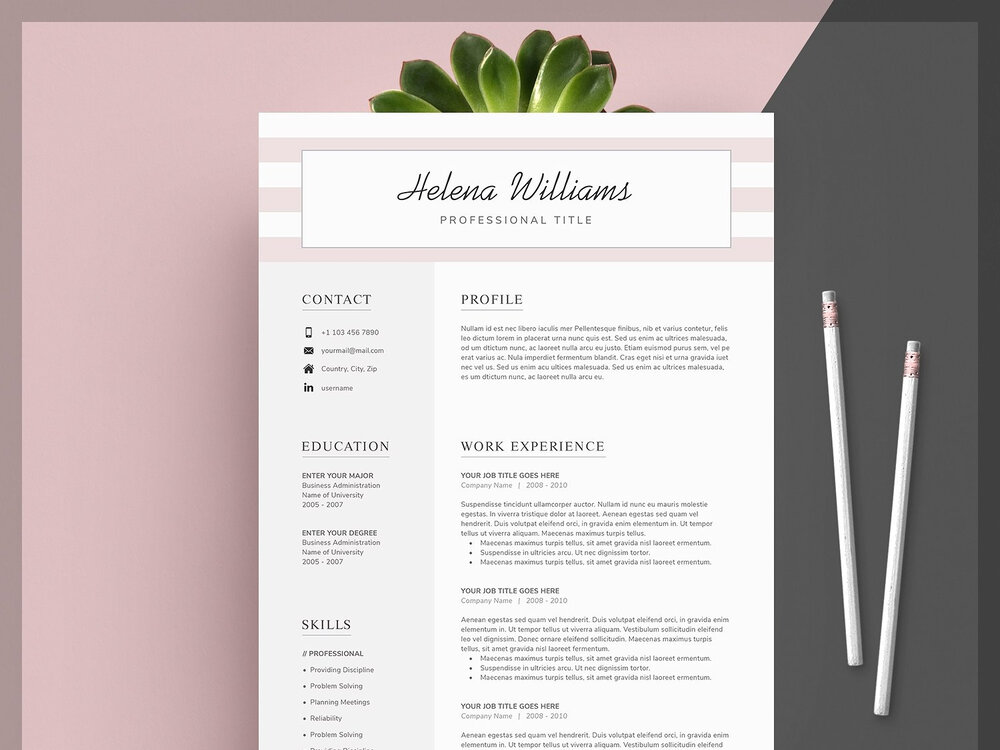Catchphrases for a cover letter

As part of an application for a job offer, you will have to write two key documents: a CV and a cover letter. These two essential documents are expected by recruiters to study your profile.
Candidates sometimes tend to neglect their cover letter. However, this document is just as important as the CV to help you get an interview. Your letter, or cover email, must leave a good impression on the recruiter, hence the importance of polite expressions.
So, what are the formulas to favor and to avoid? Discover our tips for writing a proper cover letter.
How to write a cover letter
First of all, taking care of the structure of your cover letter is essential to convince the recruiter. A convincing cover letter should include the following parts :
- Indicate the job offer you are responding to or the position you are targeting
- Add a summary of your background and your training
- Describe your professional experiences and your skills
- Explain the reasons which motivate you to join the company
Your cover letter should also include adequate polite expressions. They allow the recruiter to assess the candidate’s respect and attention to the rules of decorum.
It is important not to use these formulas clumsily. To help you in this task, we have prepared several tips and examples of polite phrases to use to impress recruiters.

How to start your cover letter well
Before starting to write your cover letter, first indicate the contact details of the company. Indicate the recipient’s address, and if you know it, the name of your interlocutor.
Then, speak directly to your interlocutor. If you don’t know her last name, tradition has it that a cover letter begins with ” Madam, Sir “. Otherwise, use Madam or Sir followed by the correctly spelled name. Be consistent and use the same formula throughout your letter.
A few mistakes to avoid
Know the common mistakes candidates make to avoid reproducing them in the polite phrase of your cover letter.
- Do not forget the capital letter to “Madam” and “Sir”.
- Do not use the ‘ abbreviation “Mr” or “Ms.” and use the full word.
- Avoid using the phrase “Dear Sir” or “Dear Madam”, too familiar if you don’t already know the person.
- Please write well “Attention” and not “Intended for”.
How to Finish a Cover Letter
Starting your letter is, in and of itself, not that complicated. Where it gets tough is at the level of the end sentence of your letter.
There are many polite expressions like “Please accept, Madam, Sir, my greetings distinguished ”or“ Please believe, Madam, Sir, in the expression of my most devoted feelings ”. So, do you really have to use these polite phrases in your cover letter?
The answer is no, or at least not these. The goal is to wrap up your cover letter politely but without going overboard. Indeed, it is more and more common for recruiters to favor shorter and simpler formulas.
Logically, if you are applying for a job, it is to want to be selected for the job. At the end of your letter, you are therefore awaiting the recruiter’s feedback, and especially awaiting a positive response. You can therefore use the following formulas:
- Looking forward to hearing from you, please receive, Madam, Sir, my sincere greetings.
- Hoping that my application will hold your attention, please accept, Madam, Sir, my highest consideration.
- Hoping that my profile meets your expectations, I remain at your entire disposal for a possible interview.
- Pending a favorable return from you, please accept the expression of my distinguished feelings.
- Remaining at your entire disposal for an interview, please accept my most sincere greetings.
What does the polite phrase really matter? that you use, it must also be a reflection of your level of involvement. This is the last sentence the recruiter will read, so this is potentially your last chance to leave a good impression.
Select a correct and sober sentence and if you don’t know what to put on, keep it simple!
Courtesy expressions in an application email
Applying for a job often involves sending an email intended to convince the recruiter to consult your curriculum vitae and your cover letter. Although this text is generally short, it should include polite phrases just like your letter.
Polite phrases in an email are less formal than those you will use in your cover letter but just as essential. The most common are the following:
- Best regards
- Best regards
- Yours
- Sincerely,
- Sincerely wishing you a good day
- I remain at your entire disposal for any further information
The polite expressions in English
If you are applying for a post abroad or within an international company, you will have to write your cover letter in English.
The polite expressions are different in English and you should therefore avoid translating literally those you know in French. To help you write your letter in Shakespeare’s language, we’ve prepared some sample formulas you can use.

Starting your letter
- For a man: Dear Mr. X
- For a woman: Dear Ms. X
If you do not know the name of your interlocutor, avoid using the formula “To Whom It May Concern”, now obsolete. You can search on LinkedIn to find his name and make a good impression.
If your search does not return any results, you can choose to use the formulas Dear Hiring Team, Dear Hiring Manager, Dear Recruiting Manager.
You can also use the Greetings formula, a little more informal than the previous ones but polite.
Conclude your letter
Write a short sentence to express your motivation and the expectation of a return from the recruiter.
- Thank you for considering my application. I look forward to hearing from you soon.
- I would appreciate the opportunity to meet with you to discuss my application. Thank you for your time and consideration.
- To conclude, I would like to reiterate my interest in this position. I’m available for an interview at your convenience. I look forward to hearing from you.
Finally, before signing your letter, use one of the following formulas followed by a comma:
- Regards
- Best regards
- Sincerely
- Yours sincerely
- Yours faithfully
Now you know which polite phrases to use in your cover letter. Remember to also write an effective and impactful CV to convince the recruiter. Good luck!




Leave a Reply